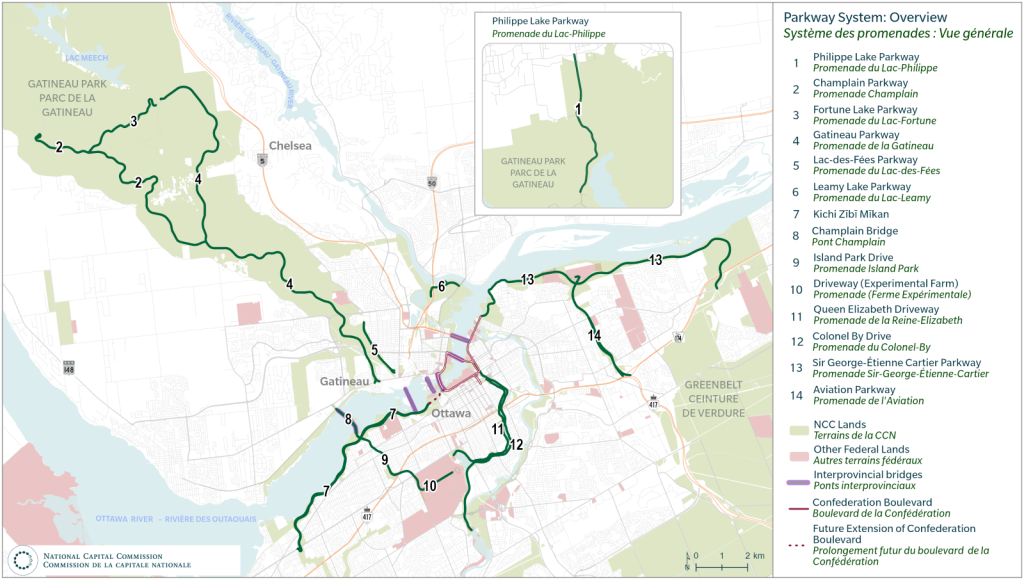Residents of Ottawa had the chance to slow down this summer and enjoy the sights of the Central Experimental Farm and Dow’s Lake by foot or bike as the Queen Elizabeth Parkway was closed to cars in July and August.
The closure provides one example of the National Capital Commission’s (NCC) goal to reimagine its parkways, with a key initiative to advance sustainable mobility and active transportation.
“The guidelines aim to provide a new vision, guiding principles and supporting policies for the parkway corridors, while acknowledging their heritage and legacy,” reads the NCC project website. “The new guidelines will adapt to the different contexts and functions of each parkway and be better aligned with recent NCC plans and contemporary planning practices.”

The NCC’s network of parkways currently spans over 90 km, featuring and connecting waterfronts, parks and green spaces. They are different from municipal, regional and provincial roads and hold the surrounding cultural, environmental and heritage value in high esteem.
The draft vision outlines six guiding principles for the planning, design and stewardship of the parkway network: distinct experiences, views and landscapes; sustainable mobility and active use; safe, equitable and inclusive; ecosystem preservation, rehabilitation and urban resiliency; connections to surrounding and placemaking; and sustainable stewardship.
The NCC is currently in the process of conducting public consultation.
It is estimated the final policies will be submitted for approval in the first quarter of 2025.